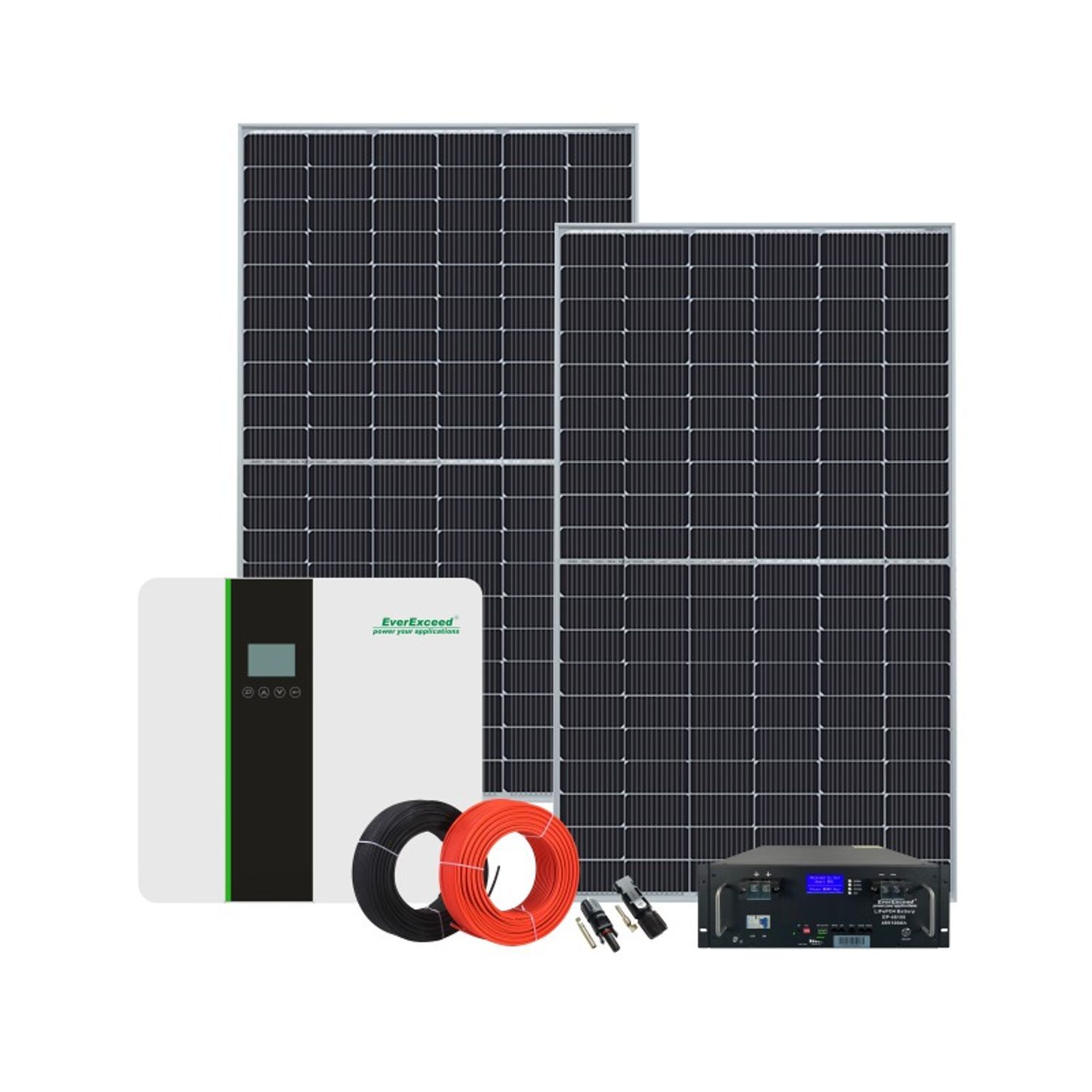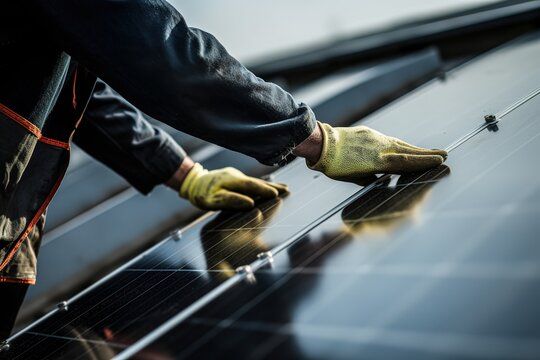
Get a Quote
How Can We Maximize the Performance of Solar PV Panels?
Solar energy is one of the most promising renewable energy sources, with solar PV (photovoltaic) panels leading the charge in harnessing clean, sustainable power. However, the performance of solar panels can be influenced by a variety of factors. To get the most out of this investment, it is essential to understand how to increase the efficiency of solar panels and achieve the maximum efficiency of a solar panel system. In this article, we’ll explore the factors affecting solar panel efficiency and how to optimize their performance for both residential and commercial applications.
What is Solar Panel Efficiency?
Solar panel efficiency refers to the amount of sunlight that a solar panel can convert into usable electricity. It is usually expressed as a percentage, and higher efficiency means better performance in capturing sunlight and converting it into energy. Understanding the efficiency of your solar panels is critical because it impacts the overall energy output and, consequently, your energy savings.
Maximum Efficiency of a Solar Panel: What to Expect
The maximum efficiency of a solar panel depends on the type and quality of the panel. Modern solar panels typically have efficiency rates between 15% and 22%, with some high-end models reaching even higher figures. Achieving maximum efficiency relies not only on the panel's inherent design but also on optimizing environmental factors that affect performance.
Factors That Affect the Efficiency of Solar Panels
There are numerous factors that play a role in determining the efficiency of solar panels. Some of these are related to the design and materials used in the panels, while others depend on external conditions.
1. Type of Solar Panel
The type of solar panel you choose will significantly influence its efficiency. The three main types are:
- Monocrystalline Solar Panels: Known for their high efficiency and sleek appearance, these panels offer some of the best energy conversion rates, typically between 18% and 22%. They are a good option if you’re looking to maximize the performance of solar PV panels in a limited space.
- Polycrystalline Solar Panels: These panels are slightly less efficient, averaging between 15% and 17%, but they are more cost-effective and still provide a reliable source of energy for larger installations.
- Thin-Film Solar Panels: Though they are less efficient, thin-film panels are lightweight and flexible, making them ideal for specific applications where traditional panels might not fit.
2. Sunlight Exposure and Shading
Solar panels rely on direct sunlight to function at their best. Even small amounts of shading, whether from nearby trees, buildings, or dirt, can drastically reduce the efficiency of solar panels. Proper placement, combined with regular cleaning, can go a long way in maximizing solar panel efficiency.
3. Angle and Orientation
The angle at which solar panels are installed is crucial for optimizing their exposure to sunlight. In the northern hemisphere, solar panels should face south to capture the most sunlight, while in the southern hemisphere, a north-facing orientation is ideal. Additionally, the angle of tilt should correspond to your geographical location to ensure the maximum efficiency of your solar panels.
4. Temperature
Solar panels are more efficient in cooler conditions. While it might seem counterintuitive, excessive heat can reduce the overall performance of solar PV panels. Heat can cause resistance within the photovoltaic cells, decreasing the amount of energy produced. Using ventilated mounting systems can help dissipate heat and maintain optimal performance, especially in hotter climates.
5. Maintenance
Regular maintenance, including cleaning and inspections, ensures that your solar panels operate at peak efficiency. Accumulated dirt, leaves, or bird droppings can obstruct sunlight and reduce energy output. Proper care helps you get the maximum efficiency of your solar panels over their lifespan.
How to Increase the Efficiency of Solar Panels
Given the various factors affecting performance, what can be done to increase the efficiency of solar panels and maximize their potential? Below are some actionable tips to ensure your solar system operates at its best.
1. Choose High-Efficiency Panels
When selecting solar panels, opt for high-efficiency models, such as monocrystalline panels. While they may have a higher upfront cost, the long-term energy savings and enhanced performance will justify the investment. Maximizing solar panel efficiency starts with selecting the right equipment.
2. Install Solar Trackers
A solar tracker adjusts the position of the panels throughout the day to follow the sun's path. By aligning the panels with the sun at all times, trackers can significantly increase the efficiency of solar panels. Though they add to the cost of installation, the energy gains in the long run often outweigh the initial expense.
3. Optimize System Design
Design your solar system layout carefully to minimize shading and maximize exposure to sunlight. This includes considering obstacles like trees, buildings, and even neighboring solar arrays. Maximizing the performance of solar PV panels often depends on small, strategic adjustments in positioning and orientation.
4. Use Energy-Efficient Appliances
To further capitalize on solar power, switch to energy-efficient appliances and systems within your home or business. Reducing your overall energy demand means you can maximize the energy savings from your solar panels and ensure that the electricity generated is used as efficiently as possible.
Long-Term Considerations for Solar Panel Efficiency
While short-term gains in efficiency can come from choosing the right panels and installation practices, maximizing solar panel efficiency over the long term involves more than just initial setup.
1. Energy Storage Solutions
Adding a solar battery to your system allows you to store excess energy for use during cloudy days or at night, thus increasing your solar system's overall efficiency. Efficient energy storage can make your system more reliable and ensure you get the most out of your solar panels year-round.
2. Regular Monitoring and Upgrades
As solar technology continues to improve, keeping an eye on the latest advancements can help you upgrade your system for increased performance. Consider smart solar monitoring systems that track real-time performance, identifying any potential issues that could reduce efficiency.
3. Inverter Efficiency
The inverter is responsible for converting the direct current (DC) electricity generated by the panels into alternating current (AC) for use in your home. Choosing a high-quality, efficient inverter is just as important as selecting the right panels, as an inefficient inverter can cause energy losses.
Conclusion: A Path to Sustainable Energy with EverExceed
In conclusion, optimizing the efficiency of solar panels requires a combination of selecting the right equipment, proper installation, and ongoing maintenance. By focusing on these key factors, homeowners and businesses alike can maximize the performance of their solar PV panels, reduce energy costs, and contribute to a greener future.
At EverExceed, we are committed to providing high-quality solar energy solutions that help you achieve maximum solar panel efficiency. Our wide range of solar products, including high-efficiency panels, advanced inverters, and reliable energy storage systems, ensures that your solar power system delivers optimal performance. With years of experience and a dedication to sustainability, EverExceed is your trusted partner in harnessing the power of the sun.
Let us help you take your solar energy system to the next level and maximize your energy savings. Explore our solutions today and start your journey toward a more efficient and sustainable energy future with EverExceed!


